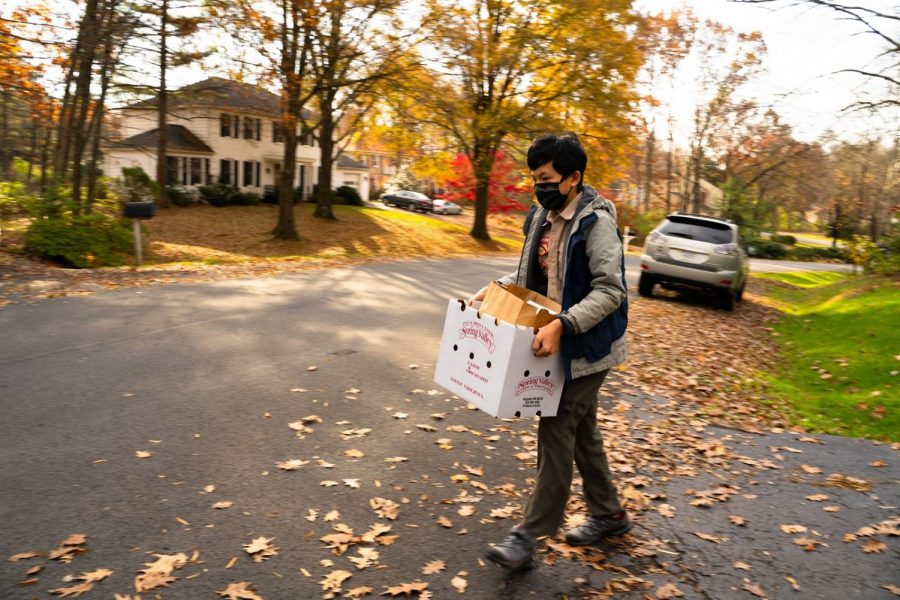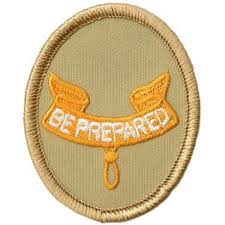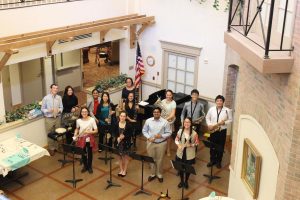“Be Prepared”: the Scout’s motto
The BSA was caught completely off guard by COVID-19
Troop 55 from Great Falls, Virginia is finding ways to continue providing service to the community while following COVID guidelines.
January 29, 2021
When COVID-19 struck the country, the BSA (Boy Scouts of America) was forced to move onto an online platform, crippling its program. The BSA’s Scouting program is a century old leadership and service program targeted at youth, and it utilizes the outdoors as a classroom through activities such as camping and backpacking. So take away the outdoors, and what remains?
I have been a part of Scouting for roughly six years. I occasionally advise the BSA on issues as a member of the youth advisory panel, and I have experience working with numerous troops. Because of my involvement in the program, I’ve been able to observe how units are adapting — or, in most cases, struggling.
Since the summer of 2020, Scouting membership and recruitment numbers have plummeted. Larger troops have gotten smaller; smaller troops have disbanded. Despite this, some troops have continued to host meetings every week. The current survival of the Scouting program proves that removing the outdoors from the equation did not completely decimate it. Presentations, games, planning meetings – all of these are possible to do online.
In my Sea Scouting troop, rank advancement has actually been on the rise, as more Scouts are finding time to practice their skills. The troop even plans on replacing some in-person meetings with virtual meetings, amidst positive feedback regarding rank advancement and cut transportation times. Because transportation can take a lot out of someone’s day, it sometimes discourages Scouts from showing up to meetings. However, online meetings remove an hour and a half of commute time and allow me to attend the meeting from my room.
However, while rank advancement and merit badges are important, the “fun” and “outdoors” aspects of Scouting are extremely hard to replicate online. Some troops have been able to attend outings and community service events while following COVID safety guidelines. Examples of outdoor activities where it is possible to socially distance are kayaking, hiking, and biking. Camping, however, still bears risk, so some troops have opted for “virtual camping,” in which Scouts camp in their backyard. While online Scouting can help fill the void, it is not a perfect replacement. It is akin to bailing water from a sinking ship but not patching the hole. Unable to interact with their friends and forced to remain indoors, many Scouts – especially the younger ones – are dissatisfied with the current situation because of the lack of social interaction. In addition, it’s difficult to make online meetings fun; even now, there is no perfect formula for how to creatively engage participants online.
Currently, the BSA is in the process of developing online resources that make rank advancement and merit badge classes still possible. Even in the earliest stages of the lockdown, merit badge counselors quickly made classes available over Zoom. However, I would advise the BSA not to abandon quality of instruction in their attempts to fill the void. After attending some virtual merit badge classes, I felt that the program instruction was disconnected and disorganized.
In the earliest stages of the lockdown, troops had neither sense of direction nor guidance from the BSA, and they were forced to either shrink or dissolve. However, many troops were able to acclimate to the new virtual setting or achieve partial success. If another pandemic were to happen, I am certain that the BSA will stick to their famous motto “Be Prepared” to avoid a repeat of their struggles. Understanding how Scouts have adapted can serve as a lesson for other outdoor programs that are currently struggling.




![Outdoor trails like this one are places that Jefferson students utilize for extended rides. "Long [bike] rides are really peaceful. It's a nice reprieve from academics,” senior Jacob Consalvi said.](https://www.tjtoday.org/wp-content/uploads/2021/01/biking-300x225.png)




